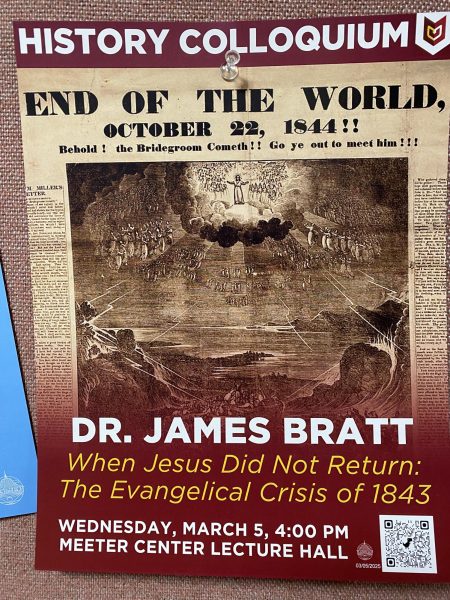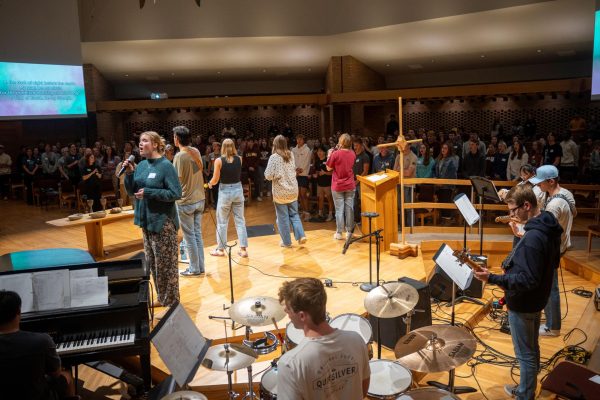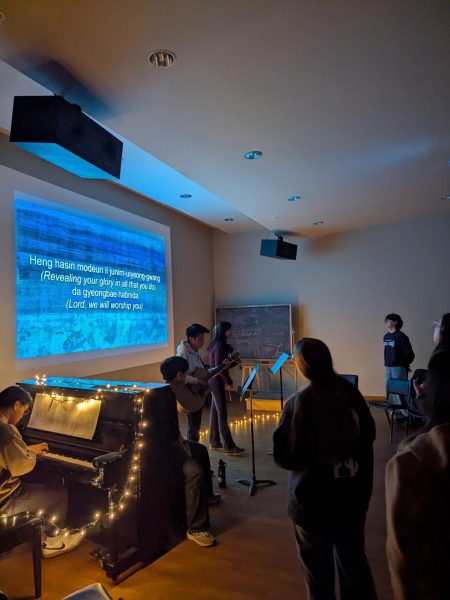Wheaton Professor Rethinks Creation
As the seats filled, students began to sit on the floor at this Tuesday’s Science and Religion Forum. Acclaimed Old Testament scholar and Wheaton professor John Walton presented his audience with an alternative approach to reading and understand the Bible in his presentation, “The Lost World of Adam and Eve: Investigating the Intersection of Genesis and Science.”
Walton did not go about trying to prove or disprove evolution, but instead tackled the major problems people have with evolution and with the biblical creation. Through his unique methodology, Walton came to the conclusion that an “acceptance of science doesn’t require a rejection of faith and the Bible.”
While Walton asserted that the message of the Bible transcends culture and time, he was quick to remind the audience that its form is culture bound. A faithful interpretation of scripture calls on our own accountability. In order for scripture to carry authority, we must be able to immerse ourselves in their cultural river to understand its context and meaning. We must be accountable to the author’s intentions and be careful to not impose our own message into it. By approaching scripture as an ancient text set in its own time with its own contextual compilations, we may get closer to its ultimate truth, Walton explained.
Walton then applied this methodology to reading and understanding the beginning of Genesis. First, he discounted the popular assumption that Genesis 2 is just an in-depth description of day six. Through the lenses of an ancient text and an analysis of Hebrew translations, Walton explained how humans were created just as the birds were: as a population. Adam and Eve in Genesis 2 then are archetypes of humanity.
Further, Walton tackled the notion that man was made from the dust of the ground. He explained to the audience that the Hebrew text actually uses a disjunctive. Instead of saying, “formed humanity from the dust of the ground,” it actually reads, “formed humanity; dust of the ground.” Thus, humanity’s identity is formed, not its biological body.
In a similar way, Walton explained that all humanity may trace its origins from Adam and Eve, whether genetics can be worked out or not. Just as American history can be traced by Benjamin Franklin and George Washington, so can a true interpretation of the Bible find Adam and Eve to be the origins of humanity.
Regardless, Walton was adamant to impress upon the audience that whether from algae, dust, apes or primates, “God has made us to be more than what he made us from”.






